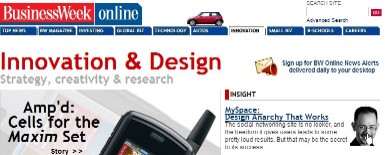I made it to Denver this morning (6th airport in the last 5 days) and am looking forward to the UPA conference.
First, I will be learning more about World Usability Day 2006 - November 14th - check out the new website for it. For those of you in northwest Ohio - start thinking about what you want to do for World Usability Day this year. Last year I was in San Francisco - this year I will be home and looking for help to organize something locally.
Second, I will get to hang out with more IBMers - lunch on Wednesday if nothing else. Often the easiest way to find out what my colleagues are doing is to spot them "on the outside". IBM is too big.
Of course, I will also be attending a few days of the conference. My two must-sees: interaction design / agile and the panel on the state of web site usability (I was on a MIUPA / local version of this panel a few years ago). Other sessions: too hard to decide.
Finally, look for me up on stage. I get 15 seconds of "fame" this time, which will be related to something I am very proud of: serving my profession.

Recent comments